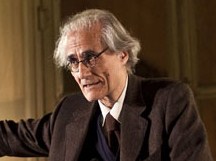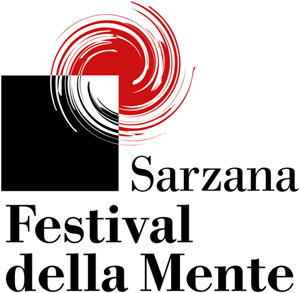2015 Programme
Event #1
Luciano Canfora
Augustus: the political ethics of a republican monarch
What relationship exists, or should exist, between political responsibility and the exercise of power? Who or what should determine its boundaries? How does power reconcile with the needs and the consensus of citizens? To which point do the authoritarian ambitions of those governing coincide with the rule of law? The tale of Augustus embodies the typical parable of power arising from a revolution and landing on an original form of restoration. Gaius Octavian, later known as Gaius Julius Octavian, following his adoption by Caesar (44 BC), later still as Augustus, then “divus Augustus” after his death, was born in the year of Cicero's consulate (63 BC), and died in 14 AD, at sixty-seven, after uninterruptedly holding a position of power – in a variety of forms – for 57 years, from 43 BC to his death. Throughout history, a longer career is difficult to find. He was precocious, and the longest-lived among bearers of the Empire. There are great political leaders whose “greatness”, in the perception handed down by tradition and, ultimately, by historiography, appears crippled by that of their predecessors. Think of Augustus, tackling his gigantic adoptive father Julius Caesar, of Hadrian compared to Trajan, of Constantine VII compared to Basil I, of Philip II in contrast with Charles V, of Stalin compared to Lenin and so on. The study of the “phenomenology of the leader” would warrant its own dissertation: from this perspective, the “case of Augustus” is emblematic. Yet his career as an unscrupulous leader, a ruthless triumvir, and as the skilful architect of an apparent “re-establishment of the Republic” – which in fact consisted in the creation of a new order of personal power that can be defined as a principality (neither monarchy nor free republic) – must not tarnish his work of imperial development and of reinforcement and expansion of the Empire on a diplomatic and military level.
is professor emeritus at the University of Bari. He supervises ≪Quaderni di storia≫, published by Dedalo, and collaborates with Corriere della Sera. He has authored many volumes published by Laterza, including Giulio Cesare. Il dittatore democratico (2006), Intervista sul potere (2013), La crisi dell’utopia. Aristofane contro Platone (2014), La maschera democratica dell’oligarchia. Un dialogo (with G. Zagrebelsky, edited by G. Preterossi, 2014). His many other publications include La storia falsa (Rizzoli, 2008), La biblioteca scomparsa (Sellerio, 2009), Il viaggio di Artemidoro (Rizzoli, 2010), Il presente come storia. Perché il passato ci chiarisce le idee (Rizzoli, 2014), Gli antichi ci riguardano (Il Mulino, 2014), 1914 (Sellerio, 2014). His latest book is Augusto figlio di Dio (Laterza, 2015).
Event #6
Alessandro Barbero
The historian's responsibility. Gaetano Salvemini: from Socialist interventionism to anti-Fascism

Event #8Approfonditamente
Marco Rossi-Doria, Giulia Tosoni
Kids and school: what, how and where are they learning

Event #13Approfonditamente
Adolfo Ceretti, Simonetta Agnello Hornby, Alfredo Verde
Gender-based violence: Perpetrators, victims and models of intervention.

Event #22
Alessandro Barbero
The historian’s responsibility. Marc Bloch: from the Sorbonne to the Gestapo prisons

Event #25Approfonditamente
Marco Belpoliti, Gianfranco Marrone, Anna Stefi
Laziness, fatigue, and our constant running

Event #26
Eugenio Borgna, Simonetta Fiori
Knowing ourselves and knowing others: a different way of being responsible

Event #35
James R. Flynn, Armando Massarenti
Without an alibi: a voyage across life’s greatest questions

Event #38
Alessandro Barbero
The historian’s responsibility. Ernst Kantorowicz: from the Freikorps to McCarthyism

Event #57Children / Kids
Sante Bandirali e Lorenza Pozzi di uovonero
Read like you’ve never read before






















